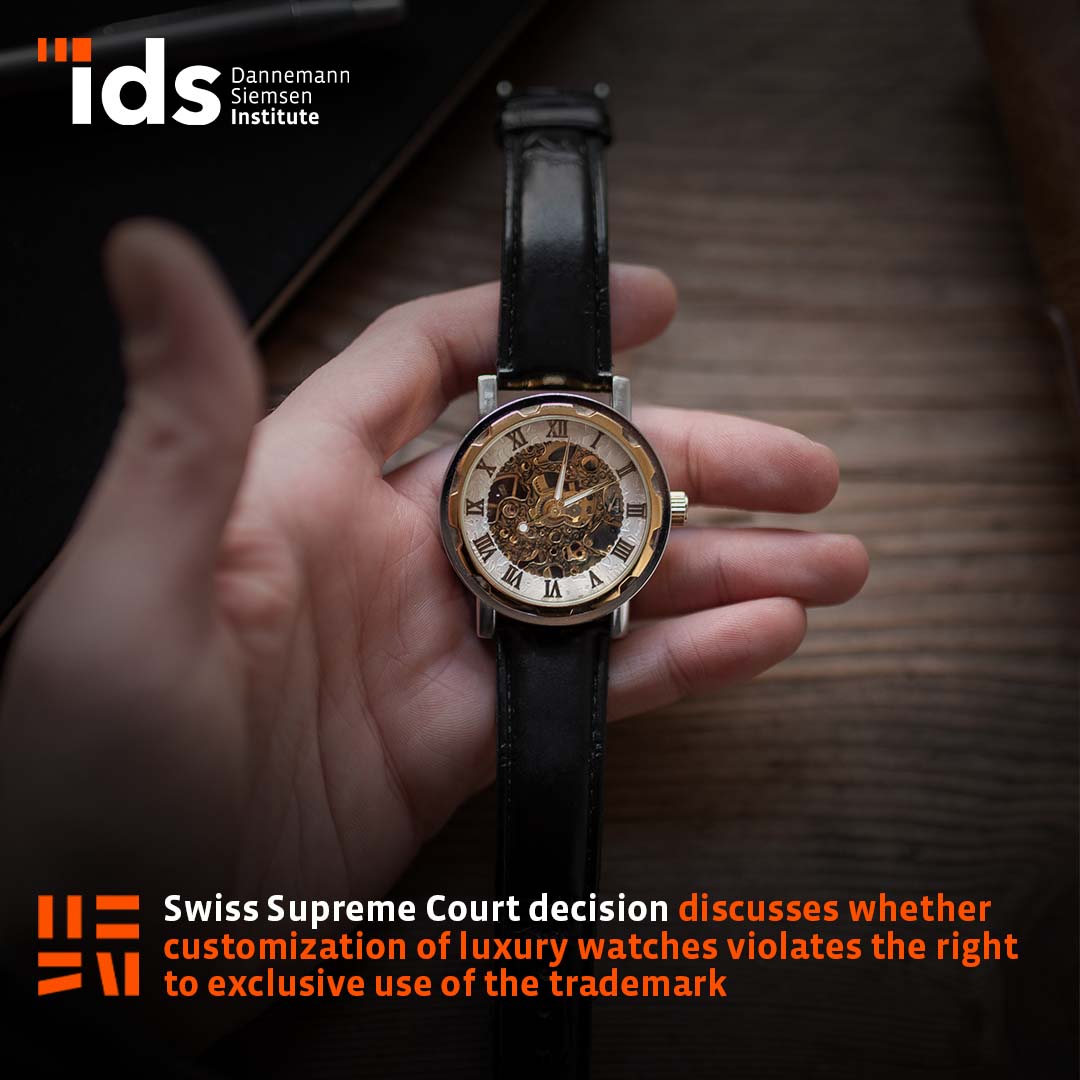14 de março de 2024
Share
Swiss Supreme Court decision discusses whether customization of luxury watches violates the right to exclusive use of the trademark
In a ruling handed down at the end of January, the Swiss Federal Supreme Court (STF) discussed whether customizing watches with the manufacturer’s brand without its authorization constitutes a violation of trademark rights. In the case, the owner of an internationally recognized luxury watch brand had a dispute against a company that was “customizing” its watches at the request of customers.
In 2020, the owner of the watch brand filed a lawsuit against the customization company at the Geneva Court of Justice (GCJ) alleging infringement of its trademark. Among the plaintiff’s requests, the defendant was required to cease marketing watches and accessories bearing its brand that were not original or that included technical or design modifications.
In the lower court, the GCJ ruled in favor of the watch manufacturer, ordering the defendant to stop customizing watches with the plaintiff’s brand. In 2023, the customization company appealed the decision to the Supreme Court.
In its decision, the STF considered the principle of exhaustion of trademark rights and the limitation of trademark rights when the use of this distinctive sign is carried out for informational purposes or for the performance of repair services for the original products marked by the trademark. Thus, the court sought to differentiate between two business models: the provision of a watch customization service to a client on demand and without keeping stocks for sale, a practice which it considered to be legal and acceptable; and the modification of branded watches for marketing, an activity which it considered to violate the right of the owner of the watch brand, also characterizing unfair competition.
Based on these grounds, the STF annulled the appealed court decision and sent the case back to the court of origin to re-examine the case, taking into account which of the two business models indicated the acts carried out by the defendant fit into, assessing whether the way in which the defendant company offered the customization services constituted an infringement, and in particular, whether it created a false association with the watch manufacturer, also considering the brand’s high reputation.
The considerations presented in the decision in question can help clarify the legal limits for carrying out customization or personalization activities on branded products, with regard to observing the trademark rights of third parties.
The decision (available only in French) can be accessed via the link: https://www.bger.ch/ext/eurospider/live/fr/php/aza/http/index.php?lang=fr&type=highlight_simple_similar_documents&page=8&from_date=&to_date=&sort=relevance&insertion_date=&top_subcollection_aza=all&docid=atf%3A%2F%2F147-III-517&rank=71&azaclir=aza&highlight_docid=aza%3A%2F%2F19-01-2024-4A_171-2023&number_of_ranks=156
